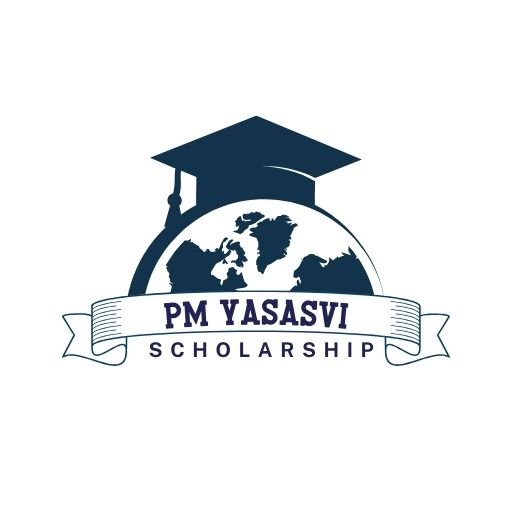Does PM YASASVI Have Income-Based Restrictions? Find Out Now
Introduction

If you’re aiming to secure the PM YASASVI Scholarship, you’re probably wondering about the eligibility criteria, especially the income-based restrictions.Let’s face it: scholarships like these change the game for students, but they require you to tick a list of boxes.Among these, the PM YASASVI income eligibility criteria stand out as one of the most crucial.
This blog dives deep into the PM YASASVI income-based restrictions, answers all your burning questions, and ensures you’re fully informed. So, grab a cup of tea, and let’s uncover everything you need to know about the PM YASASVI income limit for scholarship eligibility!
What Is the PM YASASVI Scholarship?
The PM YASASVI (Young Achievers Scholarship Award Scheme for Vibrant India) is a flagship initiative by the Indian government. Designed for students from Other Backward Classes (OBC), Economically Backward Classes (EBC), and Denotified, Nomadic Tribes (DNT), this scholarship aims to empower young minds with financial assistance. Pretty amazing, right?
But what makes this scheme truly special is its focus on uplifting students who might otherwise miss out on quality education due to financial constraints. From tuition fees to additional educational expenses, the PM YASASVI Scholarship has got you covered. It’s not just a scholarship; it’s a stepping stone toward a brighter future.
Eligibility Criteria Overview
So, who’s eligible for this fantastic opportunity? Apart from the PM YASASVI income-based eligibility, there are a few general requirements to keep in mind. Applicants should be between the ages of 15 and 17, enrolled in Classes 9 or 11, and belong to the specified categories (OBC, EBC, or DNT).
Income plays a vital role in determining eligibility. The PM YASASVI scholarship income criteria are there to ensure that only those who genuinely need financial assistance benefit from it. And this brings us to the next big question: what exactly are these income-based restrictions?
Income-Based Restrictions Explained
Let’s break it down: the PM YASASVI income limit stands at ₹2.5 lakh per annum. So,This means your family’s total annual income—from all sources—must stay within this threshold. If it exceeds the limit, you won’t qualify to apply.
Hence,This income-based restriction applies to every category eligible for the scholarship. Whether you belong to the OBC, EBC, or DNT communities, you must meet this income criterion. The policy ensures fairness and prioritizes students who genuinely need financial aid the most.
Why Income-Based Restrictions Are Important
You might wonder why income matters so much.Therefore, The PM YASASVI scholarship program focuses on targeting economically weaker sections of society.By setting clear income eligibility criteria, the program ensures that funds directly support students who genuinely need assistance.
This approach actively prevents resource misuse and guarantees that every rupee benefits deserving candidates.Ultimately, scholarships aim to bridge gaps, not widen them!
Common Questions About Income Criteria
Does family income include all sources of earnings?
Absolutely, it does! The PM YASASVI income eligibility criteria take into account every source of income—whether it’s a salary, rental income, or business revenue. Therefore, ensure you calculate honestly and accurately to meet the requirements.
Are income certificates required during the application process?
Absolutely! You must provide an income certificate to prove your eligibility. Without it, the authorities will reject your application during the initial screening process.
Can applicants appeal if they narrowly exceed the income limit?
While there’s no official appeal process for exceeding the limit, it’s always a good idea to stay updated with any policy changes. Who knows? There might be flexibility in the future.
How to Prove Your Income-Based for PM YASASVI
Are you wondering how to obtain that all-important income certificate? Don’t worry; the process is simpler than it seems. Begin by visiting your local government office or a Common Service Center (CSC). They will guide you through the steps and help you collect the necessary documents.
You will typically need proof of income, such as tax returns, salary slips, or an affidavit from a competent authority. Once you gather these documents, you’re ready to proceed. Ensure all information is accurate and up-to-date to avoid issues during verification.
Challenges Faced Due to Income-Based Restrictions
Of course, no system is perfect. Many applicants struggle to obtain income certificates, especially those from informal work sectors where incomes aren’t formally documented. This can create unnecessary delays and confusion.
Another common challenge is the lack of awareness about the PM YASASVI income-based eligibility criteria. Misunderstandings can lead to incomplete applications or, worse, disqualification. That’s why it’s crucial to read the guidelines carefully and seek help if needed.
Possible Revisions in Income-Based Restrictions
While the current income limit of ₹2.5 lakh per annum is fair, some argue that it should be revised to reflect inflation and rising costs of living. A more flexible system could benefit borderline cases, ensuring that no deserving student is left out.
Suggestions have also been made to introduce a graded system, where students from slightly higher income brackets receive partial scholarships. These changes could make the program even more inclusive and impactful.
Conclusion
To sum it up, the PM YASASVI income-based restrictions play a vital role in ensuring that the scholarship reaches those who need it most. While the current criteria are stringent, they serve an important purpose by promoting fairness and equity.
If you’re eligible, don’t let anything hold you back. First, gather your documents, then check the PM YASASVI income limit for scholarship eligibility, and submit your application with confidence. Additionally, staying informed is crucial to your success. Good luck!
